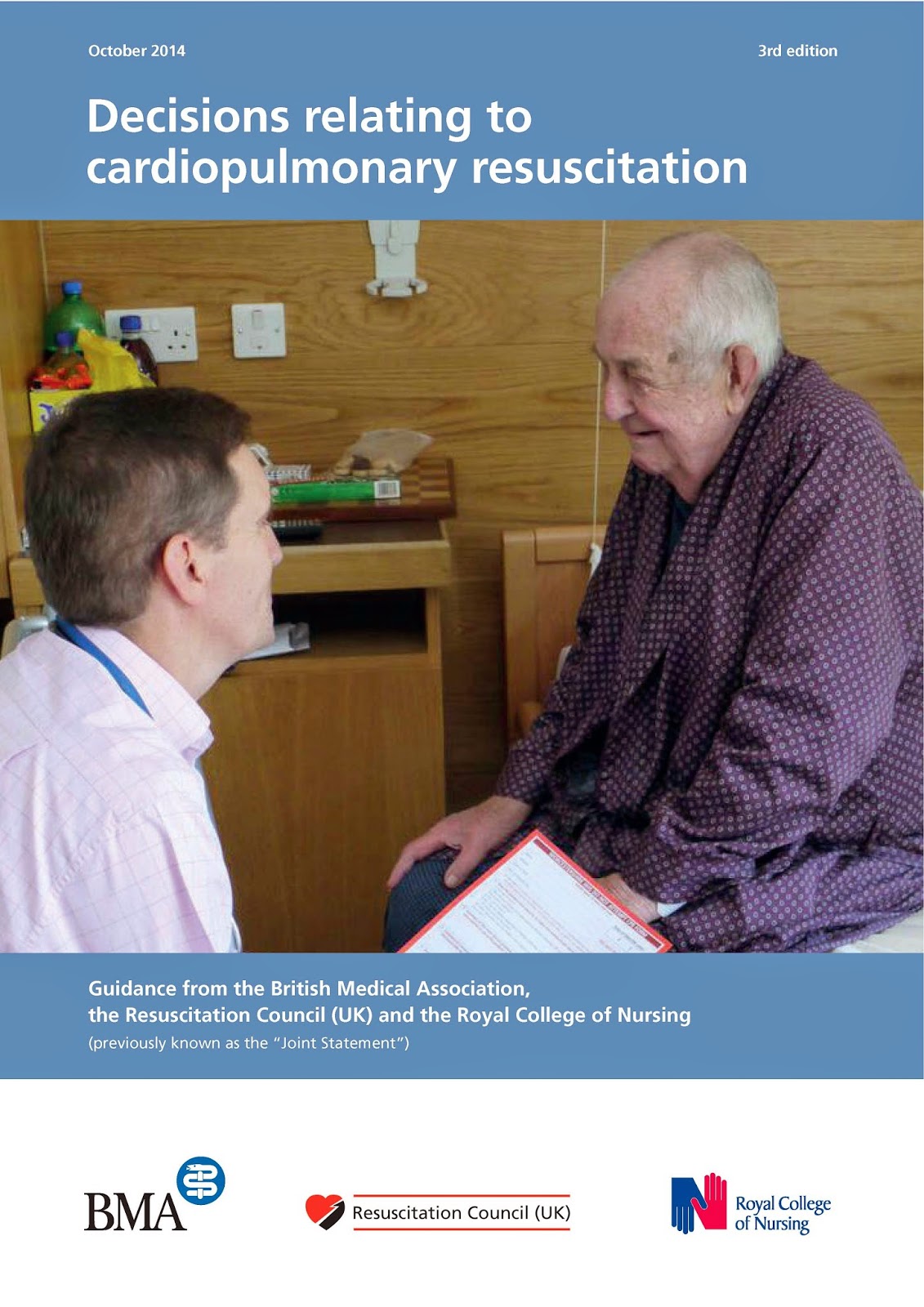 On Tuesday, the British Medical Association, in conjunction with Resuscitation Council (UK) and the Royal College of Nursing, published a new guidance, a revised edition of Decisions Relating to Cardiopulmonary Resuscitation.
On Tuesday, the British Medical Association, in conjunction with Resuscitation Council (UK) and the Royal College of Nursing, published a new guidance, a revised edition of Decisions Relating to Cardiopulmonary Resuscitation.
The guidelines identify the key ethical and legal issues that should inform all CPR decisions. Key points emphasized in the new guidance include:
- The value of making anticipatory decisions about CPR as an integral part of good clinical practice
- The importance of involving people (or their representatives if they are unable to make decisions for themselves) in the decision-making process
- That when CPR has no realistic chance of success it is important to make decisions that are in the best interest of the patient, and not to delay a decision because a person is not well enough to have it explained to them or because their family or other representatives are not available
- The importance of careful documentation and effective communication of decisions about CPR.
The guidance also warns against adopting the ‘default position’ of providing CPR, as this potentially denies patients the opportunity to refuse treatment they may not want or that, for many, may not offer overall benefit. BMA medical ethics chair John Chisholm said: "It is our primary role to benefit patients and, when treatment can no longer achieve this, it is right to avoid invasive and burdensome interventions that will not be successful."














0 nhận xét:
Đăng nhận xét